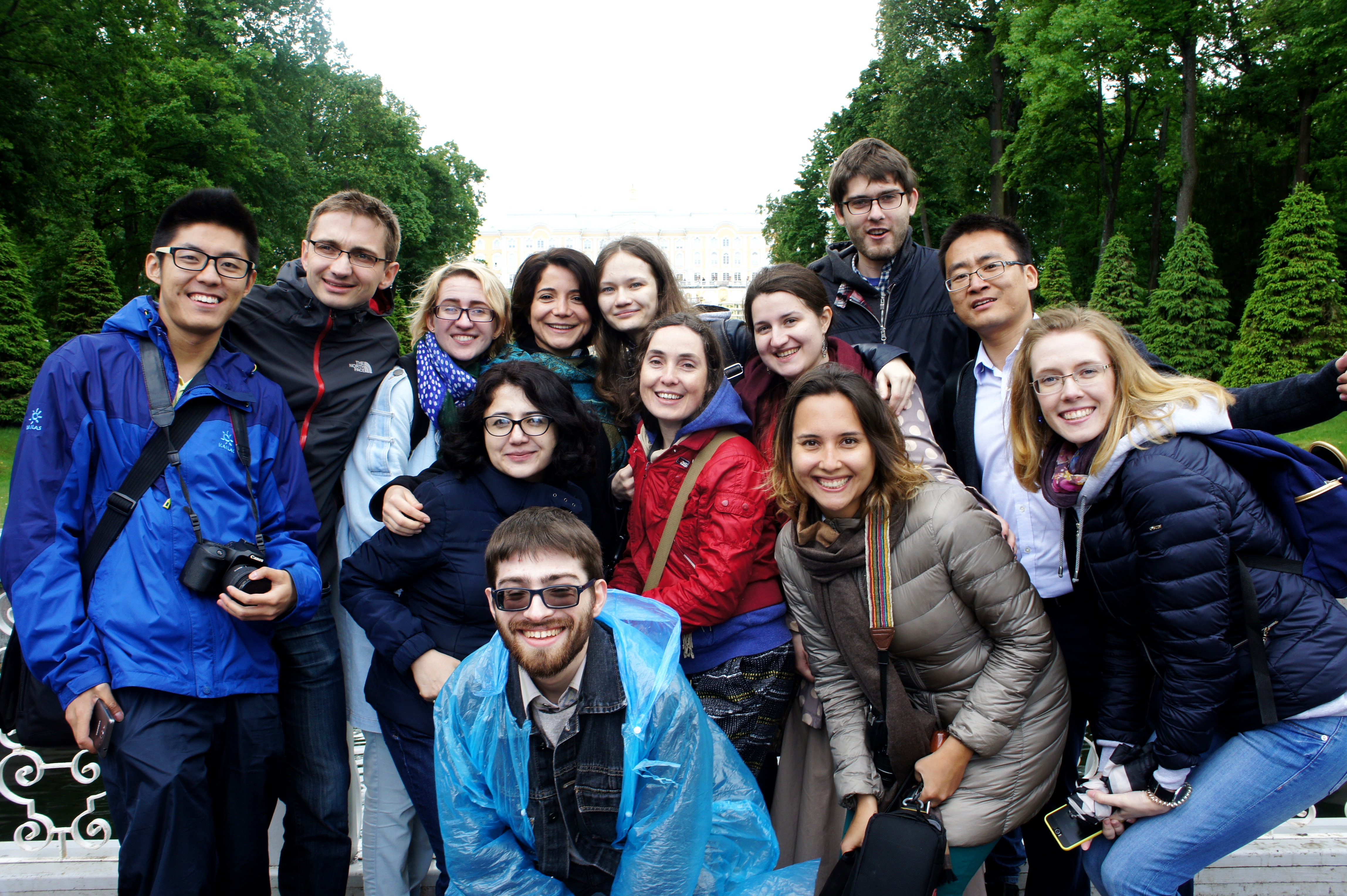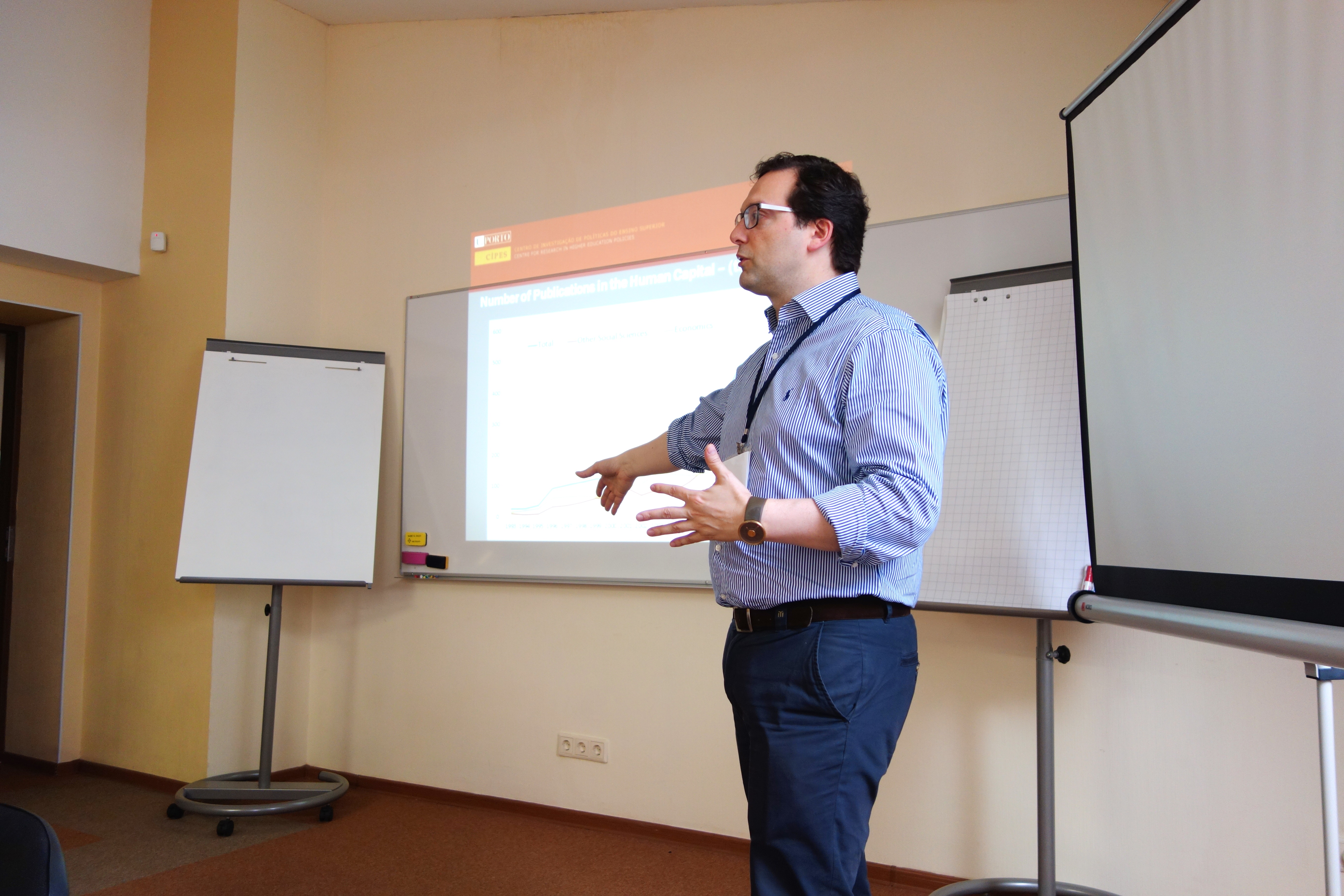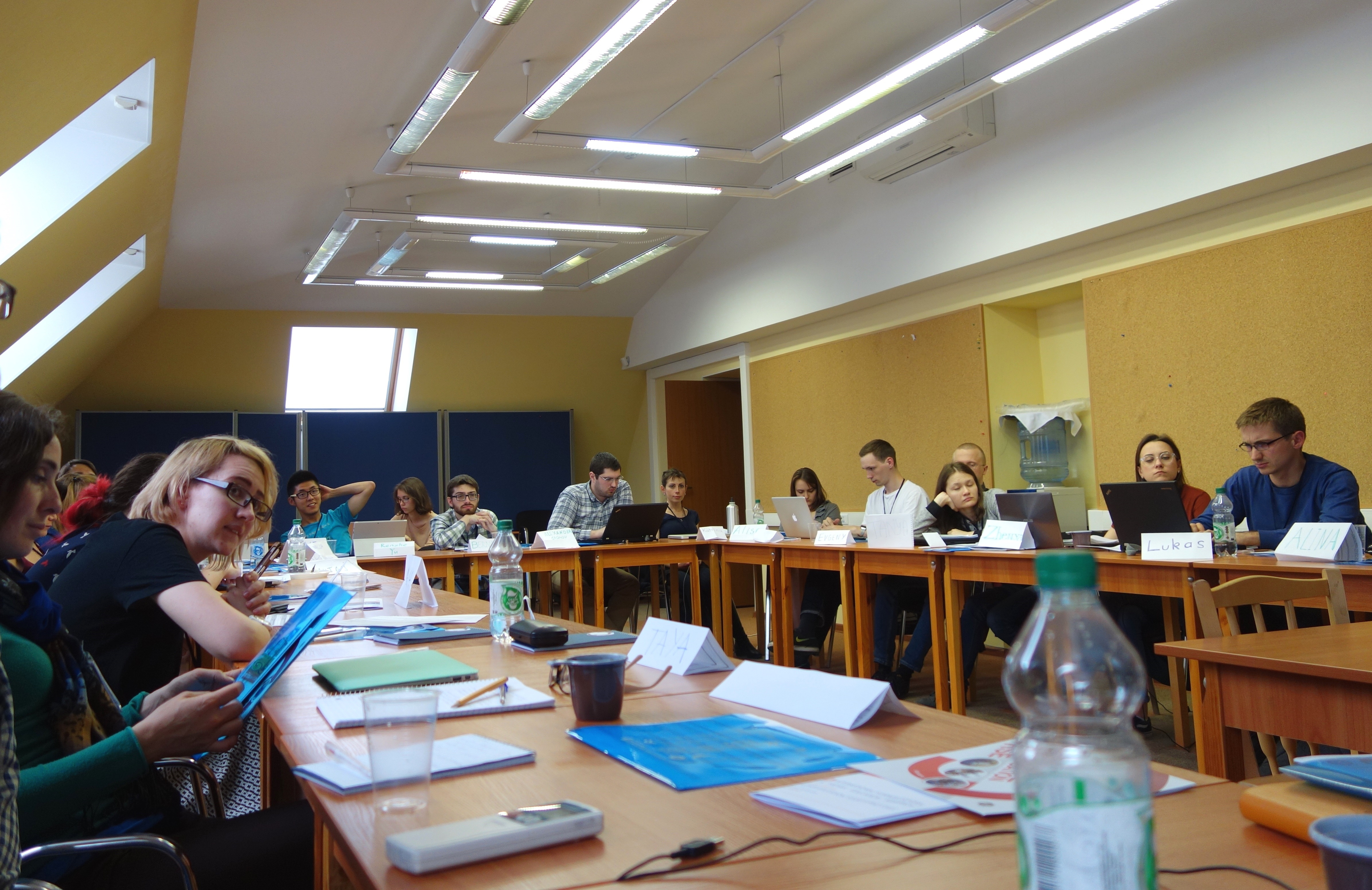International Summer School on Higher Education Research
The IV International Summer School on Higher Education Research, which was devoted to ‘Higher Education, Society and State’, was held June 4-10 in St. Petersburg. Organized jointly with the China Institute for Educational Finance Research at Peking University, the Summer School brings together senior and junior scholars in the field of higher education research; it aims to facilitate the exchange of ideas, enhance research quality, and foster the integration of early-career researchers into the international academic community.

A historical perspective on the relationships between higher education, society and state was presented by Jussi Välimaa, who provided an overview of social theories and their explanatory approaches to the role that higher education plays in modern societies.
Apart from the theory espoused by Bourdieu, many macro-level social theories do not pay sufficient attention to higher education despite its important role in socialization, transmission and formation of values, norms, culture, and reproduction of social structure. The role of new knowledge is also underestimated. The most relevant concepts, in his view, are related to the networked society, knowledge society, and information society. A critical synthesis of these theories has enabled Välimaa to propose a concept of a networked knowledge society. Under this approach, institutions of higher education can be seen as multiple purpose platforms, resource bases and important nodes of social fabrics.
Pedro Teixeira, who has been collaborating with HSE since the first Summer School on Higher Education Reserach, delivered two lectures focusing mainly on the economics of higher education and the way it has shaped education policy in recent years. The challenge, according to Prof Teixeira, is to identify and understand the limitations of the economic perspective and work in cooperation with other disciplines, using a wider range of methods and methodologies. He also participated in a roundtable discussion on the state of higher education research.

Simon Marginson, Director of the UCL Institute of Education (IOE) Centre for Global Higher Education and a recognized expert in the internationalization of higher education, has an ongoing comparative project with HSE, on federalism and higher education systems, and there may be further projects in future. He addressed the conceptual issues of the relationship among higher education, society, state and market. One way of understanding the social role of higher education is through notions of public and private goods.
Marginson presented at two sessions, one on higher education and the public/private distinction, and the other on higher education and social inequality. Among the specific issues discussed at these and other sessions were key concepts of the state, the changing nature of the state and its relationships with higher education in a historical comparative perspective, key concepts in higher education (e.g., human capital theory, markets in higher education, public and private goods in higher education, etc.), and the limits of existing frameworks and emerging potential frameworks for understanding higher education dynamics.
National systems differ in terms of level of participation, social mobility, level of income inequality, governmental role in redistribution of income, public support for higher education etc. The United States is one of the most unequal systems, with Russia and the CIS also demonstrating a moderate to high degree of inequality. Nordic countries, on the other hand, provide better opportunities and social mobility.
Higher education was also approached from the state and policy perspective, including organizational and governance challenges for large higher education systems and how they differ from similar challenges faced by smaller ones. Isak Froumin approached the issue by first providing the definition of a system, its major characteristics and elements. Higher education systems are complex systems, where the elements (higher educational institutions) are diverse and operate in different systems simultaneously (at the global, national, local levels). Still open are questions regarding the role of the state, society, students, and the academic community in governing higher education systems.

One of the key policy challenges is how to ensure change in higher education systems. Change becomes especially difficult with large higher education systems, such as those in federal states like Russia, the U.S., China, Mexico and others. Froumin’s study reveals that functional division of responsibility impedes implementation of a single comprehensive policy in such states. It also shows a lack of coordination between federal and regional level initiatives.
Throughout the Summer School participants had the opportunity to present their own research. Each was given 30 minutes to give a talk, answer questions and receive the feedback from faculty members and other participants. All participants also took part in group projects on topics related to the theme of the Summer School. The groups presented their insights on the final day.
‘This was the best of the four Summer Schools held so far’, said Simon Marginson. ‘The standard of the students, and student contributions to discussion, was high. There was a serious minded, focused approach to the sessions’.
Marginson was eager to share words of wisdom for young people embarking on a career in higher education. ‘Higher education is important to all societies and is becoming more important’, he said. ‘The social science of higher education is not yet strongly developed. Your research and critical scholarship is potentially important – you could make an important original contribution to understanding this sector’.
See also:
HSE Shares Its Experience of Urban Strategies at International Summer School in China
In the context of intensifying global geopolitical and technological competition, leading Chinese educational institutions—Zhejiang International Studies University and Peking University—organised an International Summer School. Their joint programme focused on studying global, regional, and urban development strategies. The HSE Faculty of Urban and Regional Development took part in this event.
HSE GSB and Alfa-Bank Host Summer School for Chinese Students
The international summer school Digital Product Management, a joint educational project by the HSE Graduate School of Business (HSE GSB) and Alfa-Bank, brought together over 30 students from leading Chinese universities.
HSE University Students and Postgraduates Take Part in Peking University International Summer School
In July 2025, Peking University hosted its annual Quantum Molecular Dynamics Summer School, which has moved onto an international stage. Its first foreign guests were students and postgraduates from the HSE Tikhonov Moscow Institute of Electronics and Mathematics (MIEM). They took part in an extensive academic programme and had the opportunity to visit a laboratory that works with optoelectronic materials and energy devices.
‘Student Ideas Shed Light on Key Challenges for Urban Development’
The first international joint summer school of the Vysokovsky Graduate School of Urbanism (GSU) at both the HSE Faculty of Urban and Regional Development and Brest State Pushkin University (BrSU), hosted by BrSU, has come to a close. The programme focused on studying buffer zones along the railway lines encircling the city centre. Participants included students from the GSU’s Urban Planning degree programme, as well as students from BrSU and Brest State Technical University.
HSE University Represents Russia at Leading International Educational Exhibition APAIE
HSE University was the only participant from Russia to hold its own expert sessions at the annual conference and exhibition of the Asia-Pacific Association for International Education (APAIE). The delegation was headed by Anna Tyshetskaya, Director of HSE University–St Petersburg.
‘A Laboratory at 3,000 Metres’: HSE University–St Petersburg to Start Call for First Summer School in Himalayas
HSE University–St Petersburg has announced the call for the Summer School in the Himalayas, which will take place from June 30 to July 13, 2025. The Summer School is the follow-up to two expeditions in the Himalayas organised by the St Petersburg School of Social Sciences in 2024. The programme allows bachelor's, master's, and PhD students to immerse themselves in research on climate change and sustainability in local communities in the unique natural laboratory of the Himalayan region.
From Sequencing to Constructing a Cardio Panel: Summer School in Cardiogenetics
From August 19 to 29, the Continuing Professional Development Centre of the HSE Faculty of Computer Science hosted the summer school 'Cardiogenetics: From Sequencing to Constructing a Cardio Panel,' organised in collaboration with the Russian Academy of Sciences' Institute of Analytical Instrumentation (IAI) and Institute of Spectroscopy (ISAN), and the Syntol company. The summer school was conducted within the framework of the Federal Research Programme for Genetic Technologies Development for 2019–2027 (Project 15.IP.21.0004).
'These Are Unforgettable Impressions, I Will Cherish Them Forever'
HSE St Petersburg International Summer School is in full swing—right now, international students from 12 countries are attending lectures and enjoying the cultural programme. The HSE News Service talked to the participants about their most vivid impressions.
HSE University-St Petersburg Hosts Students from 12 Countries at the International Summer School
On July 10, HSE University-St Petersburg launched the International Summer School—a series of classes for students from India, Vietnam, the Republic of Korea and other countries. Foreign guests are getting to know the university, attending lectures in six fields of study, and enjoying an inspiring cultural programme.
'You Find Yourself Thinking about Your Research 24/7'
Daria Gracheva, expert at the Institute of Education, turned to science in pursuit of methods to discern between a poorly constructed test and a well-designed one. In this interview with the HSE Young Scientists project, she discusses the '4K test,' which is intended to measure critical thinking and communication skills, shares insights on the model named after Georg Rasch, and explains how setting up an aquarium for a crab can help assess soft skills.


